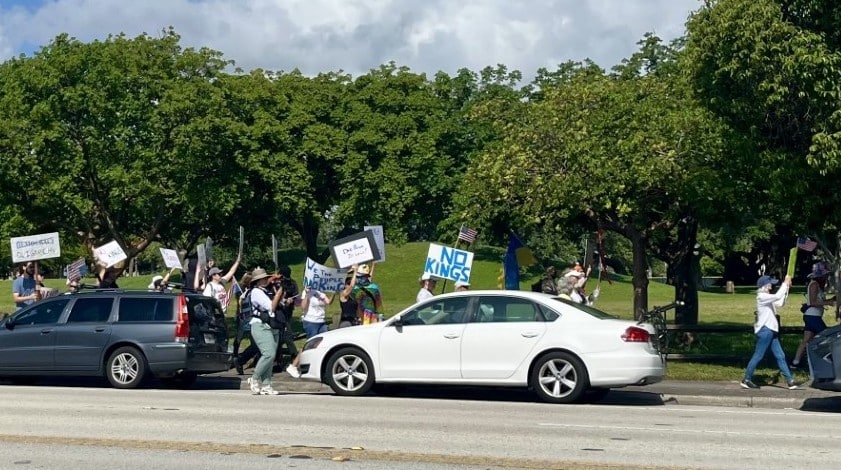Despite a volatile political climate in the U.S., expected mass protests against the new Trump administration appeared slow to start after Inauguration Day. However, from unrest in Los Angeles to this weekend’s nationwide No Kings Day actions, the uptick in anti-Trump protests suggests the tide could be changing.
If momentum continues to build, will a new era of political unrest impact employers?
According to Lorrie Lykins, vice president of research at the Institute for Corporate Productivity, it likely already is. And forward-thinking employers need to be proactive in maintaining their culture and projecting stability through uncertainty and divisiveness.
“The current climate highlights a critical truth: In times of turmoil, many people turn to their workplaces as refuges of predictability and psychological safety,” she says.
Earlier this month, Immigration and Customs Enforcement raids in Los Angeles set off a series of protests that prompted a federal deployment of the National Guard—and further protests around the country. Meanwhile, Saturday’s “No Kings Day” movement—designed to counter the military parade in D.C. commemorating the Army’s 250th anniversary and taking place on Trump’s 79th birthday—drew millions of Americans across more than 2,000 locations. Although protests were largely peaceful, there were injuries in Virginia when a car intentionally struck protestors, and arrests were reported in some cities.
Regardless of whether employees participated in such actions or where they fall on the political spectrum, they should fully understand their employer’s policies regarding civic engagement during non-working hours, Lykins says. Proactively communicating the stance can be critical to fostering the safety that employees are seeking from working.
Messaging should be clear and transparent, and HR would be “wise” to work closely with legal counsel on such messaging, with a focus on remaining “current and compliant,” Lykins says.
This is a particular concern “when reminding employees that personal views, while encouraged, must not be presented as representing the organization unless explicitly authorized to do so.”
“These messages should be firmly rooted in the organization’s core values and guiding principles, affirming support for employees’ rights to express their beliefs through lawful, individual action,” she says.
Communicate workplace expectations
While HR professionals may be faced with navigating a growing protest movement, they are also increasingly tasked with policing a divisive political environment inside workplaces. Strategic communication is also critical in this regard, says Amy Mosher, chief people officer at isolved.
“Employees and leaders alike should understand the expectations for keeping workplace discussions constructive, inclusive and respectful,” she says.
Kevin Oakes, i4cp co-founder and CEO, earlier this year told HR Executive that it’s “fairly pointless” for employers to try to prevent employees from talking about how political issues are impacting them. Yet, HR may need to remind workforces that they don’t have the “freedom of speech to express racist, sexist or other discriminatory views.”
“I think confusion often comes from employees thinking they have the right to free speech in the workplace,” he says. “The First Amendment only prohibits the government from restricting free speech, not private employers, which means the company can set its own parameters.”
The ‘power’ of acknowledgment
HR needs to reinforce those communication standards to leaders and managers and provide them the “right tools” to emphasize expectations with employees, Mosher says.

“Political discourse is often unavoidable in the workplace, and organizations must equip leaders to manage these conversations effectively,” she says.
Leaders can also play a key role in reducing the anxiety that undoubtedly comes with heightened political tension, Lykins adds. Research from i4cp, she says, points to the “power of acknowledgment.”
“Leaders can help ease employee anxiety by simply recognizing that external events are both unprecedented and emotionally charged,” she says.
While such recognition may seem simple, she says, it can go “a long way” toward building trust with employees and demonstrating empathy.
Conversely, both aims could suffer if leaders fail to acknowledge the moment the nation is in.
“There are no perfect scripts in these moments, but silence can be interpreted as a conscious decision to ignore what’s plainly unfolding—a choice that can damage employee trust and wellbeing,” Lykins says. “We encourage leaders to reflect on this deeply.”
Credit: Source link










